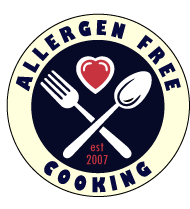The dietary derivatives of egg white and yolk have several uses in food production.
Egg White Derivatives:
- Ovomucoid is used as a binder and emulsifier in various food products, such as meat and dairy products.
- Ovotransferrin is used as a source of iron and as a food preservative due to its antimicrobial properties.
- Ovalbumin is used as a source of protein in sports supplements, such as protein powder.
- Lysozyme is used as a food preservative to prevent spoilage caused by bacteria.
Egg Yolk Derivatives:
- Livetin is used as an emulsifier in processed foods to improve texture and stability.
- Phosvitin is used as a source of phosphorus and as a food emulsifier.
- Lipovitellin is used as a source of lipids (fats) in processed foods.
- Yolk immunoglobulin G (IgG) is used as a source of antibodies and as an ingredient in some functional food products.
Here are some common dietary derivatives of egg proteins that may be used in food products:
Albumin: A protein found in egg white that is used in a variety of food products, such as baked goods, processed meats, and sauces.
Ovomucoid: A protein found in egg white that is used as a binder and stabilizer in some food products.
Ovotransferrin: A protein found in egg white that is used as a preservative and antimicrobial agent in some food products.
Ovomucin: A protein found in egg white that is used as a thickener and emulsifier in some food products.
Conalbumin: A protein found in egg white that is used as a binder and emulsifier in some food products.
Lysozyme: An enzyme found in egg white that is used as a preservative and antimicrobial agent in some food products.
Globulin: A protein found in egg white that is used as a binder and emulsifier in some food products.
Ovalbumin: The major protein found in egg white, which is used as a source of protein in some food products and supplements.
It is important to note that these egg protein derivatives may not always be listed specifically on ingredient labels. If you have an egg allergy, it is important to carefully read all ingredient labels and to be aware of the potential for cross-contamination in food processing and preparation environments. Additionally, it is recommended to speak with a healthcare provider or a registered dietitian for personalized guidance on how to manage an egg allergy.

No comments:
Post a Comment
Collective Mind = Solutions